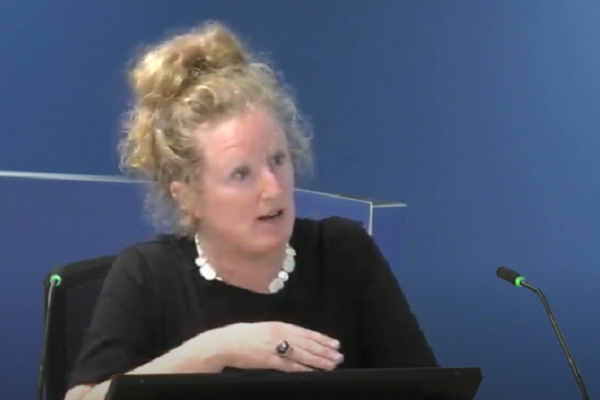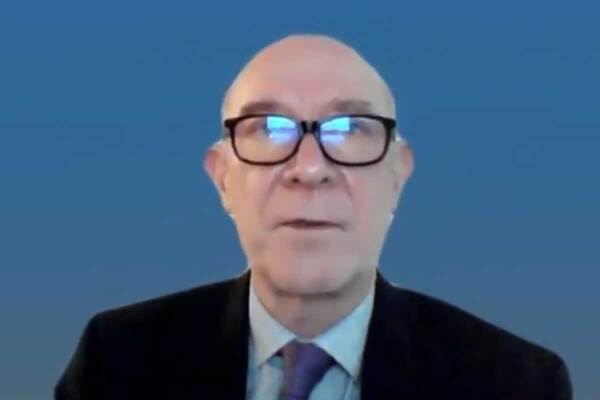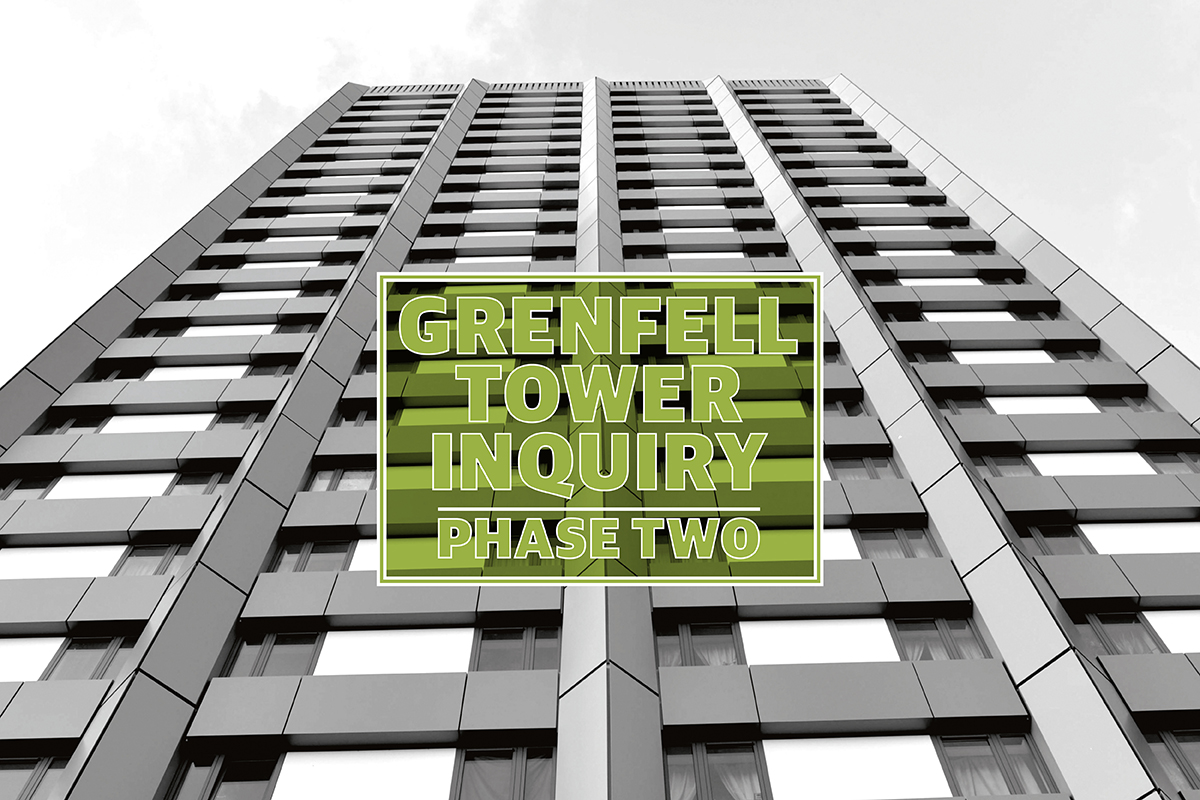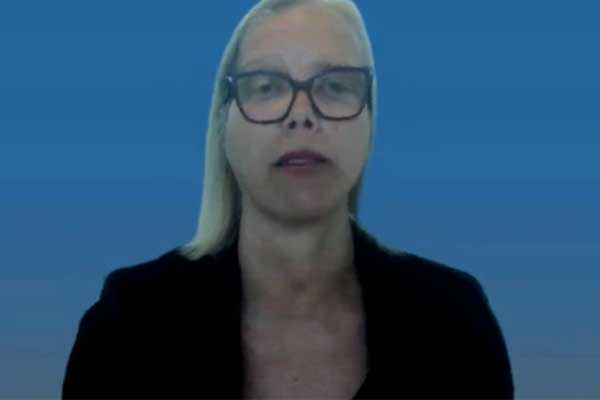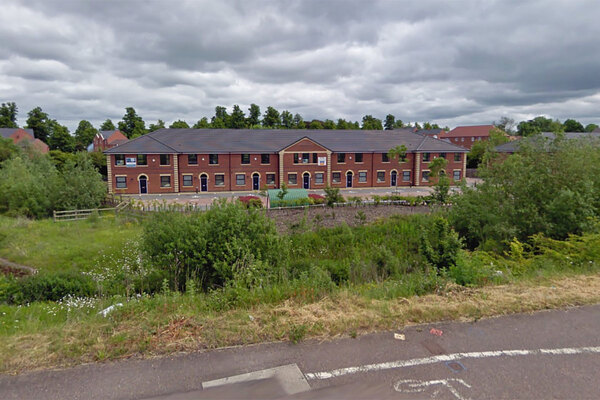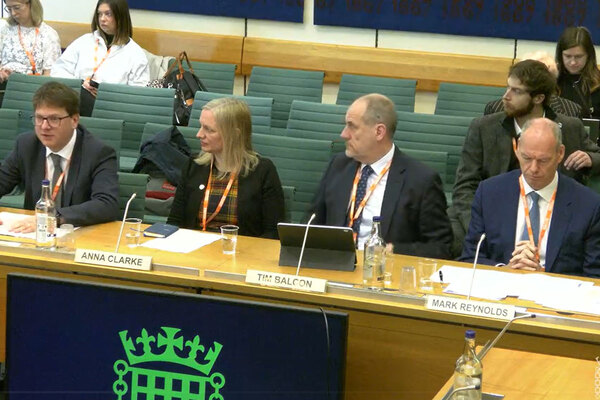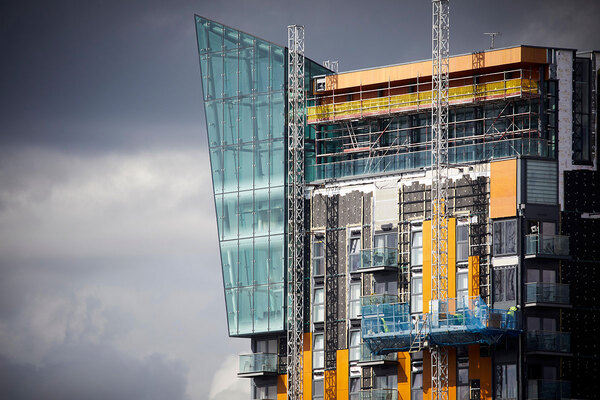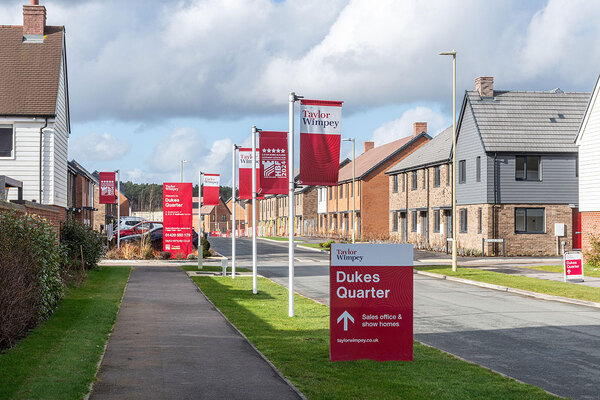Grenfell demonstrates ‘culture of non-compliance’ in construction industry, inquiry hears
The Grenfell tragedy demonstrates a “culture of non-compliance” in “certain sectors” of the construction industry and the lack of candour from some professionals is an “affront to the dead”, the inquiry into the fire has heard.
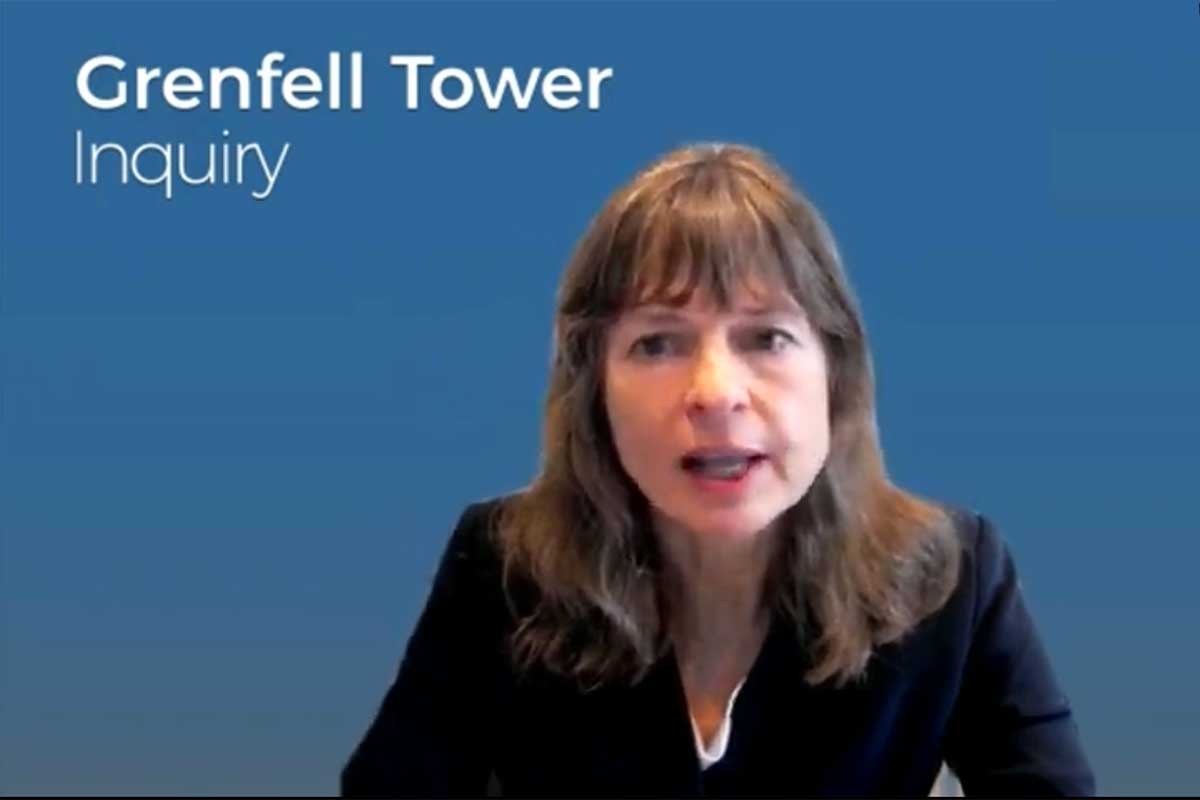
This week, a number of core participants are providing their closing statements to modules one and two of phase two of the Grenfell Tower Inquiry, which covered the cladding of the tower and the testing and marketing of the products used as part of the refurbishment.
In her closing statement, Stephanie Barwise QC, who represents a group of bereaved families and survivors, said: “Despite being a legacy and very high-profile project for [the Royal Borough of Kensington and Chelsea (RBKC)], and the only building it had ever overclad, the refurbishment of Grenfell was hastily conceived by an inept design team with a hapless lead consultant, Studio E.”
Ms Barwise criticised each of the main “protagonists” in the refurbishment – architect Studio E, lead contractor Rydon, cladding sub-contractor Harley Facades and fire engineer Exova – and said the refurbishment can be characterised by their “lack of competence” and “refusal to take professional responsibility”.
She said Studio E was the “author of its own misfortune” as its “failure to consider the statutory requirements of the cladding at the outset left it at the mercy of unscrupulous manufacturers and their agents”.
Speaking on behalf of Studio E, Prashant Popat QC said in a closing statement: “Studio E firmly believes that its staff were not incompetent nor were they dishonest and it strongly maintains that they discharged their obligations with reasonable care and skill and in accordance with the practice of a responsible body of architects at that time.”
Mr Popat put forward a number of arguments to back that statement, including the fact that the government’s fire safety guidance was “not fit for purpose” and that other specialist sub-contractors had raised no issues with the design of Grenfell’s facade.
Meanwhile, Ms Barwise said contractor Rydon was “intimately involved” in the selection of the aluminium composite material (ACM) cladding, which it helped select “without questioning its safety because it increased Rydon’s profit margins as it is cheap”.
Multiple Rydon employees have previously said they were not aware that the ACM cladding used on the Grenfell Tower was combustible.
Fire engineer Exova has repeatedly said it was not asked about the building’s cladding by the refurbishment’s design team, while cladding sub-contractor Harley Facades has said they had been assured by the produce manufacturers marketing material that the products used on the tower were safe.
Ms Barwise said members of the refurbishment’s team have put forward two main defences against the criticisms laid at them during the inquiry: that the government’s fire safety guidance was unclear and that the product manufacturers misled the market with regards to the fire safety of their products.
She said neither of these defences “exonerate” the design team as the majority “did not even trouble to read” the fire safety guidance, adding that she believed they would not have chosen the products if they properly understood the government’s Approved Document B (ADB).
Mr Barwise added: “Something more significant is at play than confusion in the guidance. Building regulations are primarily concerned with life safety and the failure of Grenfell’s designers and contractors to familiarise themselves adequately or at all with regulations and the ADB coupled with their deliberate incuriosity as to the products is tantamount to a total neglect of safety.
“Grenfell demonstrates the existence of a culture of non-compliance within certain sectors of the construction industry. Put bluntly, there is a kind of recklessness as to whether or not compliance is achieved.”
Ms Barwise also criticised the majority of witnesses from cladding and insulation manufacturers Kingspan, Celotex and Arconic for their “lack of candour” during the inquiry, which she said was an “affront to the dead, the bereaved and the former residents of Grenfell”.
She said the only “truthful voices” came from Celotex employees Jonathan Roper and Jamie Hayes.
Ms Barwise was especially critical of Kingspan, whose “fingerprints are all over this disaster”, she told the inquiry.
Module two contained a number of important revelations with regards to Kingspan, including the fact that the fire safety test it used to promote the insulation used on Grenfell was carried out on an “old technology” version of the product that had not been sold since 2005. Senior Kingspan figures have denied being aware of this until after the fire.
A senior Arconic employee has denied the cladding firm deliberately concealed the truth about the safety of their product, while Celotex employees have said they were pushed to sell their combustible insulation to be used on high rises after competitor Kingspan begun marketing its similar product as safe.
Ms Barwise was also critical of the British Board of Agrément (BBA), an independent certification body, and the Building Research Establishment (BRE).
She said: “The whole certification process may properly be regarded as positively dangerous since it creates a veneer of respectability, which in some cases serves to conceal test results obtained by dishonest testing”.
BRE employees have denied being aware of the alterations the cladding manufacturers made to their products during testing, while BBA employees blamed the product manufacturers for not providing all available information during the certification process.
Many of Ms Barwise’s criticisms were repeated by Martin Seaward, who is representing the Fire Brigades Union. He said: “There was an institutional deep-seated complacency about fire safety, a shameful and inexplicable failure to oversee work of contractors or to seek assurance from properly instructed professionals and encroaching the running and funding of the testing and certification bodies by the manufacturing companies, thereby compromising their independence.”
He characterised these failures as “the natural result of central government’s deregulatory agenda, which has publicly, and we say recklessly, demeaned health and safety on the principle that business interests should not be fettered”.
Mr Seaward was preceded by James Maxwell-Scott QC, who was speaking on behalf of RBKC.
Mr Maxwell-Scott repeated several of the admissions RBKC made during its opening statement to module one, most notably that building control signed off on the refurbishment of Grenfell when it should not have.
After this, he spent much of his statement defending the accusation that the fire at Grenfell occurred due to RBKC cost cutting by running through a list of 15 decisions and evaluating to what extend cost-cutting played a part in the council’s decision.
He urged the inquiry to find that “public money should be seen to be managed and spent prudently” and the concept of “value for money” is not a “synonym for cheapest”.
Similarly, Kensington and Chelsea Tenant Management Organisation (KCTMO), which managed housing on behalf of RBKC, argued in its closing statement that it had an “obligation to secure value for money in procurement” and that this should be kept in mind when the panel considers “tender bids, cost savings and value engineering”.
Speaking on behalf on KCTMO, James Ageros QC, also urged the inquiry to “benchmark” KCTMO’s “conduct against other social housing providers”, arguing that the “terrible fire” could have happened “in any other building clad in the same or similar materials”.
“In those circumstances, the TMO invites the inquiry to consider whether it is right to judge it as harshly as many have. The TMO did rely and was entitled to rely on the extensive professional team that was assessed pre and post-contract, all of whom had their own duties under the [construction, design and management] regulations.
Exova, Arconic, Celotex, Kinsgpan, the BRE and Rydon will all provide closing statements to the inquiry this week.
The Grenfell Tower Inquiry continues.
Sign up for Inside Housing’s weekly Grenfell Inquiry newsletter
Each week our sister publication Inside Housing sends out a newsletter rounding up the key news from the Grenfell Inquiry, along with exclusive analysis of what it all means for the social housing sector.
Already have an account? Click here to manage your newsletters
